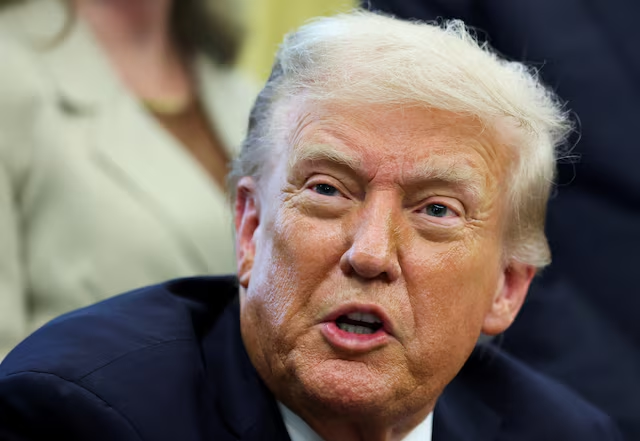News
Trump’s Hidden Corporate ‘Tax’ May Be What America Needs

Despite declining corporate taxes and interest rates over the past 40 years, the U.S. federal deficit has continued to rise. Does this mean the government is justified in claiming a larger share of corporate profits—and is this perhaps the tax hike America really needs?
Let’s take a step back. As is well known, the U.S. government has been running a deficit for years. Since 2002, it has generally increased, and by fiscal year 2024, it’s projected to reach $1.8 trillion.
This reflects that federal spending is growing faster than revenue. Outlays on entitlement programs—including Social Security, Medicare, and Medicaid—have been the largest driver when measured as a percentage of GDP. Discretionary spending on defense and interest payments, while significant, has had a much smaller impact, though necessary interest payments have increased with rising rates.
On the revenue side, taxes remain the primary source of government funds, with most of the collection coming from individuals and households. According to the Congressional Budget Office (CBO), in 2024 individual taxes will account for 8.4% of GDP, while corporate taxes will represent just 1.8%.
This suggests that if the federal deficit is to be reduced, the government must either cut entitlement spending or increase corporate taxes. Political realities make the first option highly unlikely—but what about the second?
Favorable Conditions Created by Government Policy
Here’s the point. While government finances have worsened in recent decades, U.S. corporations have benefited from a series of policy-driven tailwinds.
The first is tax-related. Since 1986, the federal corporate tax rate has been cut by 25 percentage points.
Yet during this same period, personal tax rates have remained largely unchanged.
The second major relief for corporations has been the steady decline in interest rates from the 1980s through 2022.
Lower borrowing costs have helped consumers too, but companies have reaped far greater benefits as their expenses fell and equity valuations surged. The combined effect of these two favorable forces has been enormous. A June 2023 Federal Reserve report found that more than 40% of the real growth in corporate profits from 1989 to 2019 could be attributed to lower interest expenses and tax rates.
It certainly appears that American businesses have been supported by government policy for years. Could it now be time for them to repay the favor?
A Tax by Another Name
Today, we’re witnessing significant shifts in U.S. fiscal policy. A clear example is the rise in tariffs, which is generating substantial revenue. According to the Bipartisan Policy Center, as of September 10, the U.S. had collected $162 billion in tariff revenues this calendar year alone.
Treasury Secretary Scott Bessent remarked that this amount is significant—but the question remains: where is the money coming from? In other words, are tariffs acting more like a corporate tax or a consumer tax?
For now, the answer seems to be the latter. The second-quarter corporate earnings season suggested that many, though not all, companies are passing a significant portion of the tariff burden onto customers in the form of higher prices.
But tariffs are not the only “hidden tax” being imposed by the Trump administration. The government is also seeking equity stakes in companies.
This includes a 10% stake in Intel, a “golden share” in U.S. Steel (X.MX), new stakes enabling a merger with Nippon Steel (5401.T), reductions of 15% in stakes in Nvidia (NVDA.O) and AMD (AMD.O), new stakes in chips sold in China, and investments in MP Materials (MP.N).
Taken together, these moves point toward a potential sovereign wealth fund—or an unconventional form of corporate taxation—that could generate significant revenue.
Indeed, the government’s investment in MP Materials has already doubled. Assuming stable sales of Nvidia and AMD chips in China, and based on the companies’ past 10-year average net income, the current arrangement could contribute $320 million annually to the U.S. Treasury. If recent income levels persist, that figure could exceed $1.4 billion per year.
Given the scale of the U.S. deficit, the gap between corporate and personal tax rates, and the enormous profits companies have earned—thanks in part to government policy—this approach may not be such a bad idea.
It’s true that government involvement may raise concerns about corporate independence. It could pressure stock prices and challenge the economic orthodoxy that has dominated the past four decades.
However, the administration could argue that in today’s geopolitical climate, these companies—or their sectors—are national security assets. After all, the government has previously taken stakes in companies, especially during crises like the global financial meltdown.
Ultimately, if the U.S. wants to reduce its staggering deficit, it must find ways to boost revenue. Raising tax rates on households or businesses outright might be politically untenable—for now. It’s no surprise, then, that the government is exploring more creative avenues.
Is this new “tax” the right path forward? That remains an open question.
